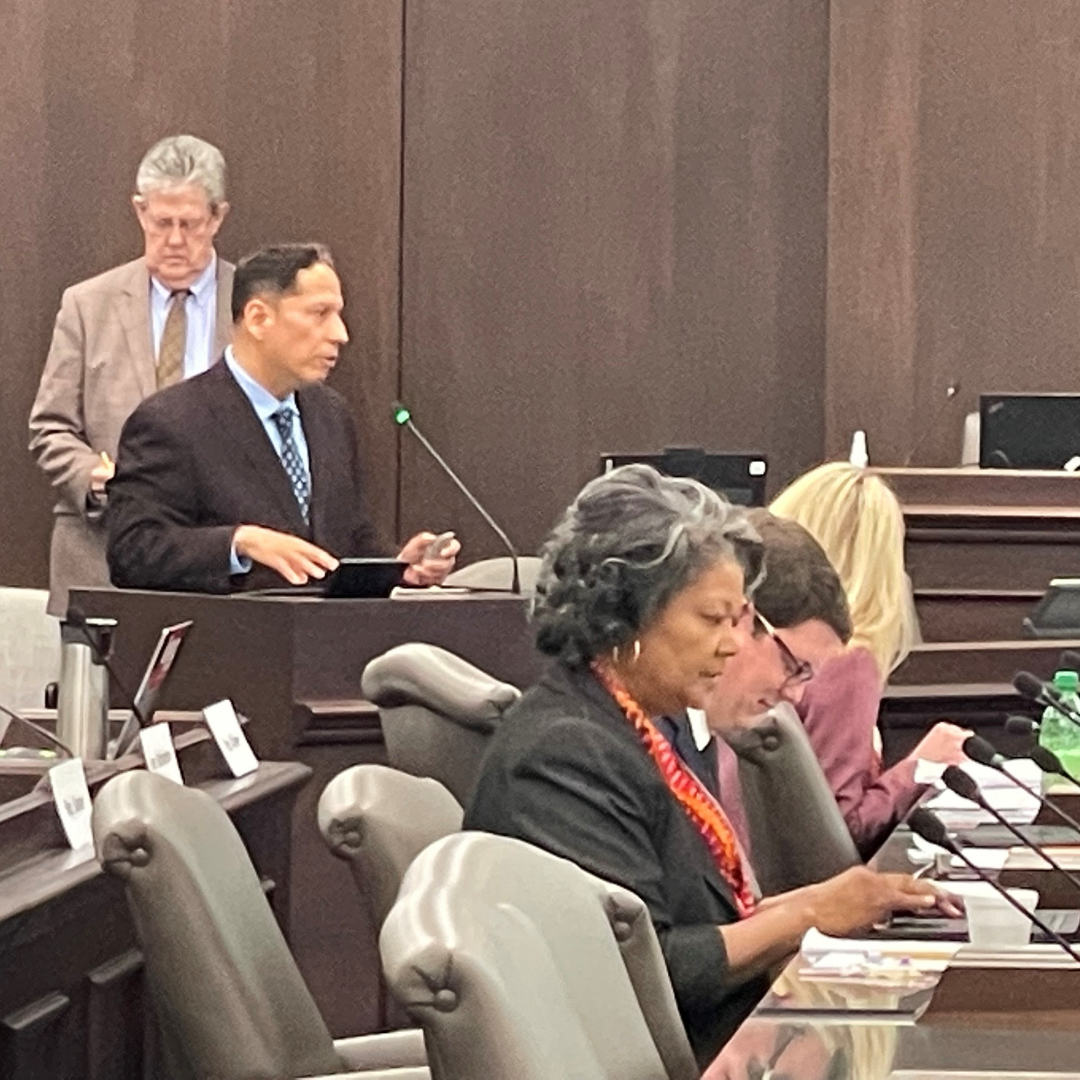Dean Ramos Addresses Full Practice Authority for Primary Care NPs at NC Legislature
On Tuesday, March 29, 2022, Dean Vincent Guilamo-Ramos, PhD, MPH, LCSW, RN, ANP-BC, PMHNP-BC, FAAN, testified to the Joint Legislative Committee on Access to Healthcare and Medicaid Expansion at the North Carolina General Assembly about full practice authority for NPs providing primary care.

On Tuesday, March 29, 2022, Dean Vincent Guilamo-Ramos, PhD, MPH, LCSW, RN, ANP-BC, PMHNP-BC, FAAN, testified to the Joint Legislative Committee on Access to Healthcare and Medicaid Expansion at the North Carolina General Assembly about full practice authority for NPs providing primary care. He focused on expanding access to health care and improving health outcomes. Ramos, who is also the vice chancellor of nursing affairs for Duke University, was among eight experts presenting varied views on full practice authority.
“For me, [full practice authority] is about health equity. I grew up in a community that was underserved,” Ramos said in his opening remarks. “I care about access for all … and having all of us collectively move forward.”
In speaking to the joint committee presided over by Sen. Joyce Krawiec, Ramos addressed the role that nurse practitioners have in transforming health care access and outcomes in North Carolina, including the opportunity to expand care in rural areas that face health care shortages. The joint committee is hearing from experts as they consider passing the SAVE Act, which was first introduced in 2021 to expand full practice authority for primary care NPs in North Carolina. A similar version of the SAVE Act has been introduced in previous legislative sessions, but no action was taken on the legislation.
"Nurse practitioners should be able to practice at the highest level of their competencies, education, and licensing," Ramos said. "Full practice authority isn't new. This isn't innovative. We have 30 years of evidence from 24 states, D.C., and several US territories about the benefit of granting full practice authority to NPs. This improves health outcomes and expands health care to underserved populations and will benefit the people of North Carolina."
Across the state, 97 of 100 counties face a health professional shortage.
Ramos reflected on his role as dean of the top school of nursing in the state and the second-ranked school in the U.S., and the intense pride he has seeing Duke graduates strengthen their career opportunities with the education they gain at Duke. “The nurse practitioner workforce growth is faster in states with full practice laws than in states with restricted practice,” said Ramos, who is interested in attracting NPs to practice in the state.
Ramos observed that the first states to authorize full NP practice authority began doing so in 1994 — nearly three decades ago — and that, once passed, full NP practice authority has never been repealed. “Full practice authority for primary care NPs improves care access, improves care outcomes, and improves workforce supply,” said Ramos, who also addressed a systematic review of 33 studies that showed no evidence for better NP care outcomes in states with more practice restrictions.
In addressing the critical nursing workforce shortages across the U.S., Ramos notes that NP workforce growth is faster in states with full practice laws compared to states with restricted practice. Across the U.S., during the COVID-19 pandemic, states issued temporary waivers of NP practice restrictions. “This enabled more time-responsive NP practice and care provision as well as a streamlined process for NP orders in the absence of physician signature requirements and an increased capacity of the health care workforce to respond to COVID-19,” Ramos said.
Ramos observes that the reliance of nurses in this manner during a pandemic and health care crisis demonstrates the clinical, scientific, and relational expertise that support nurse influence in improving health outcomes, and it demonstrates the confidence that the health care systems and public have in nurses, who have been considered the most trusted and most ethical profession for more than 20 years.
In conclusion, Ramos presented to the committee that:
- NP practice restrictions contribute to inadequate care access and primary care workforce shortages, particularly in rural areas.
- NP practice restrictions can be a barrier to improving health outcomes and reducing health outcomes and reducing health-related economic costs.
- NP practice restrictions requirements can lead to an unsafe and fragile care model, including risks such as the possibility of immediate NP loss of ability to care for patients if a physician can no longer provide supervision for any reason, including moving, retiring, and so on.
- NP practice restrictions weaken health workforce responsiveness to emergencies.
- Physician supervision agreements can contribute to unnecessary and excessive costs.
The SAVE Act (House Bill 277/Senate Bill 249) did not receive a committee hearing during the 2021 legislative long session. However, following the conclusion of the committee’s work later this spring, the bill could move forward when the legislature returns for the 2022 short session on May 18, 2022.
Photo courtesy of the North Carolina Nurses Association.